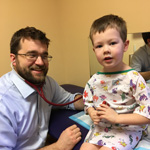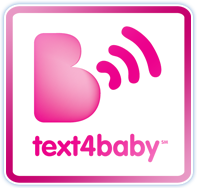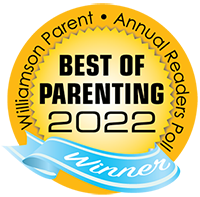My 3-week-old’s left eye produces excessive tears. His eye is extremely watery to the point of tears running down his face. What could be wrong with his eye and how can I treat it?
The most likely cause for the excessive tears is a blocked tear duct. There are small holes in the upper and lower eyelid that drain tears from the eye into the nose. Since these hole are so tiny they frequently become obstructed so tears don’t empty into the nose and instead drain down the face. Nasal congestion leading to swelling within the nose may contribute to the intermittent nature of the problem.
Most infants will outgrow this problem by their first birthday. To minimize symptoms, massaging the corner of the eye may help milk the duct. Additionally, using antibiotic drops when the eye becomes crusty helps. If the problem persists beyond 9 months, a pediatric ophthalmologist may recommend probing the nasal lacrimal duct. A visit to your pediatrician to examine your infant and discuss your options is in order.
My 8-year-old daughter suffers from what I believe are migraines on average of four to six times a month. What is the best course of treatment and are there any surefire preventative measures for her age?
If your daughter is having throbbing head pain that might be accompanied by nausea, abdominal pain, light/sound sensitivity, or vomiting and the headache is usually relieved by sleeping, you are probably correct that she is having migraines. These type of headaches occur is 3-5% of school age children. Frequent triggers are hunger, fatigue, dehydration, or stress. Keeping your child well rested with regular meals may help.
Treatment options in children are limited to acetominophen or ibuprofen since many of the adult headache medications like “triptans” have not been studied in children. Getting your daughter to take medicine as soon as she recognizes she has a headache will help abort the pain sooner, but getting some children to recognize pain and then ask for medication quickly enough to help can be difficult. Luckily pediatric migraines tend to be of shorter in duration than adult.
Children with headaches more than one time a week may discuss preventative medication with their pediatrician. Low doses of anti-seizure medications, anti-depressants, or blood pressure medications can be used to help lower the frequency of headaches.
Worrisome headaches are those that wake your child in the middle of the night, or first thing in the morning. Also, early morning vomiting with a headache may be concerning. Be sure to call your pediatrician if these symptoms develop.
The information and content on our website should not be used as a substitute for medical treatment or advice from your doctor.




